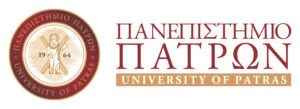The goal of psychology is located on basic research to understand human cognition; i.e., the study of mind and behavior by posing questions regarding the cognitive processes of perception, memory, attention, thinking, and consciousness. In particular, the processes of reasoning, problem solving, and learning are explored, as well as the significance of prior knowledge on students’ cognitive development, on the construction of their representations and on the development of conceptual representations and conceptual change. Additionally, another goal of psychology is located on applied research to promote learning issues through the design of appropriate educational environments and the use of effective teaching tools. More specific goals of psychology are the understanding of learning in specific scientific fields, such as physics, biology and mathematics, and the investigation of the impact of using cognitive cultural tools to mediate cognition in these specific scientific fields.
Selected publications
-
Kyriakopoulou, N. & Skopeliti, I. (2024). Pre-service teachers’ epistemic and educational beliefs about learning, teaching and students’ cognitive engagement: Their effect on selecting teaching practices, International Journal of Early Childhood Education, 30(1), 1-29.
-
Lavidas, K., Skopeliti, I.,Zacharos, K., & Panagiotounakos, E. P. (2023). Preservice preschool teachers’ math experience and math anxiety on their beliefs and attitudes toward teaching mathematics. Journal of Early Childhood Teacher Education, 44(4), 962-979. https://doi.org/10.1080/10901027.2023.2196943
-
Σκοπελίτη, Ε. & Βοσνιάδου, Σ. (2022). Διδακτικές αναλογίες και εννοιολογική αλλαγή: ο ρόλος της προϋπάρχουσας γνώσης στην κατανόηση αντι-διαισθητικών επιστημονικών εξηγήσεων μέσα από τη χρήση διδακτικών αναλογιών. ΨΥΧΟΛΟΓΙΑ, 27(1), σσ. 66-85. https://doi.org/10.12681/psyhps.30684
-
Κακαβάς, Κ., Ζαχάρος, Κ., Σκοπελίτη, Ε., & Κόμης, Β. (2022). Η διδασκαλία της γωνίας μέσω προγραμματισμού με το Scratch. Στο Χρ. Παναγιωτακόπουλος, Α. Καρατράντου, & Σ. Αρμακόλας (Επιμ.) Πρακτικά 7ου Πανελλήνιου Συνεδρίου «Ένταξη και Χρήση των ΤΠΕ στην Εκπαιδευτική Διαδικασία» (σελ. 295-307), ΕΗΥΕΤ & ΕΤΠΕ, Πανεπιστήμιο Πατρών. (ISBN: 978-618-83186-7-0)
-
Giotopoulos, G., Skopeliti, I., Koukouvelas, I., Economou, P., Gianni, E., & Papoulis, D. (2022). Civil Engineering Students’ Misconception on Principles of Geology. Στο Trofymchuk & B. Rivza (Eds.) Proceedings of the 22nd International Multidisciplinary Scientific GeoConference – SGEM 2022, 22(5.1), pp. 735-741. (DOI: 10.5593/sgem2022/5.1/s22.092)
-
Skopeliti, I., & Riga, A. (2021). Collaborative Learning and Its Positive Impact in the Cognitive Development of Children with Learning Disabilities. Current Research in Language, Literature, and Education (e-book), Vol 2, 73-82. DOI: 10.9734/bpi/crlle/v2/15108D
-
Zacharos, K., Skopeliti, I.,Aggelopoulou, D., & Karalis, T., (2020). Preschool educators’ self-efficacy beliefs about teaching probabilistic concepts and their change in the course of participating in an inquiry-based training program. Education Journal of the University of Patras UNESCO Chair, 7(2), 70-86. https://doi.org/10.26220/une.3378
-
Skopeliti, I., & Vosniadou, S. (2016). The Role of Categorical Information in Refutation Texts. Journal of Cognitive Science, 17(3), 441-468.
